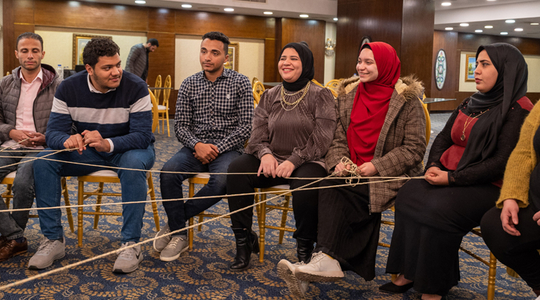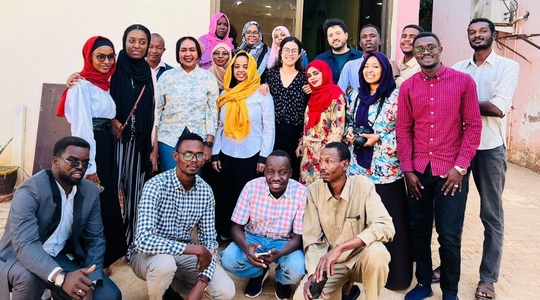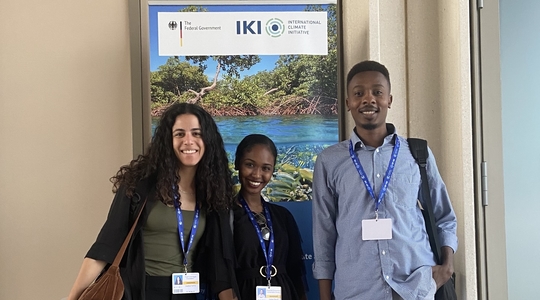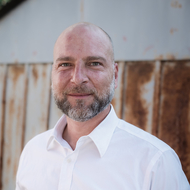In the centre of this simulation game is the conference on Social Ecological Issues and the development of an innovative and comprehensive Climate Resilience Plan. The simulation game is set in a fictional country and addresses the intersection between climate change, local initiatives and national policies regarding key topics like food, energy, water, community, health, and economy between youth, civil society organizations, and government representatives.
During the Climate Conference, the participants work in committees to formulate the Vision and Recommendations for Action of a strategy that is called Climate Resilience Plan. The negotiations are divided into two phases: development of a vision for each particular topic, and the recommendations for action developed in line with the previously defined vision and set the framework for concrete activities implemented under the respective topic. Since a big part of negotiations takes place in committees, it is possible to integrate participants with diverse levels of preparation. From the findings inside the simulation game, valuable lessons can be drawn that provide an ideal basis for further concrete planning in reality.
Scenario & Procedure
The scenario takes place in the fictional country of Rashad, a littoral country characterized by vast deserts and mountainous areas, with 65% of its population living in rural areas, strongly depending on agriculture. Nearly a third of the population is between 15 and 26 years old and despite the overall positive economic development, wealth and income distribution is highly unequal. Changing patterns in the climate – as well as acute impacts of extreme weather make the situation even more challenging in Rashad. Within a series of conferences about social ecological issues in Rashad, representatives of the Ministry of Environment and Water, the Ministry of Economy and Trade, and the national farmers' association and the Youth Representatives from Al Rabea, a small town in Rashad, have been invited to discuss about climate adaption measurements.
Objectives
The overall goal is to gain a better understanding of the complexities that underpin social-ecological conflicts, which are exacerbated by climate change. Participants will gain general knowledge about developing and negotiating climate change adaptation actions while dealing with conflicts of interest. Participants learn about topics such as water, energy, food, community, health, and the economy, and they try to come up with solutions to promote resilience. They will learn how to identify common goals, reach agreement (consensus, majority vote, etc.), and outline the results in a common resolution as different actors from various sectors.
Learning Goals
- Deeper understanding of the complex relationship between climate change and key sectors in society
- Overcome the lack of youth participation in social and ecological solution building
- Increase the capacity of innovative and holistic thinking when being faced with risks and challenges derived from climate change




